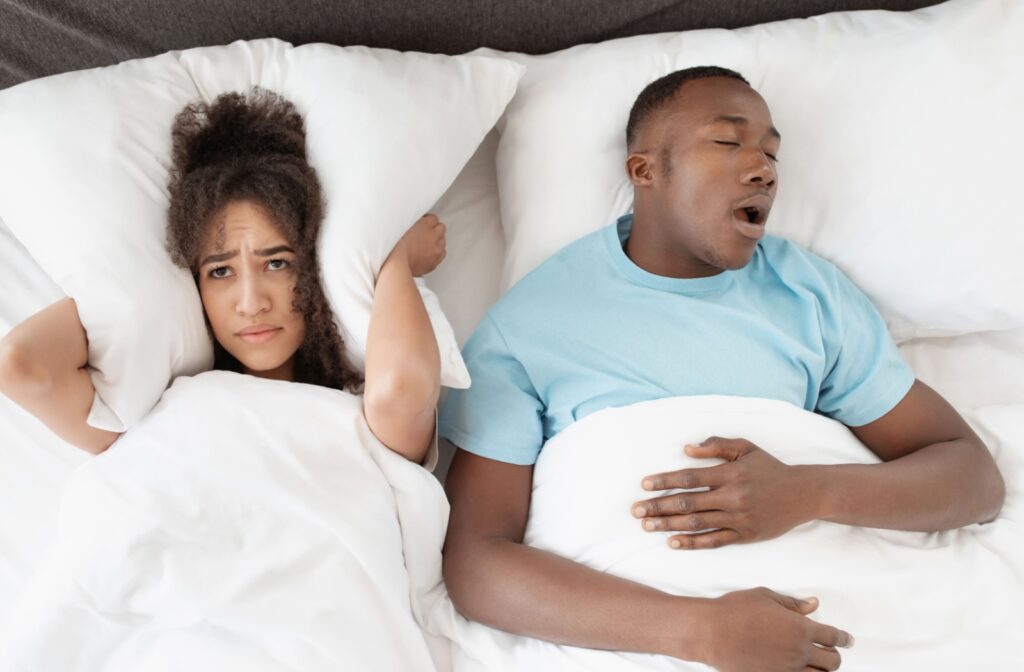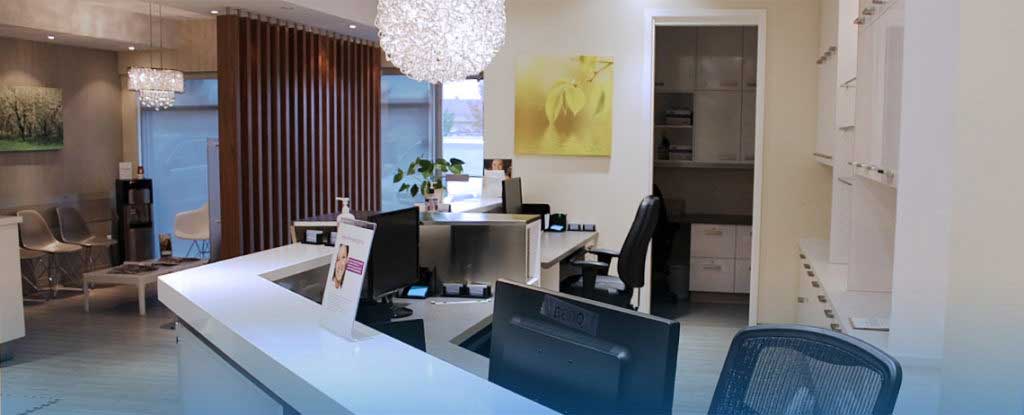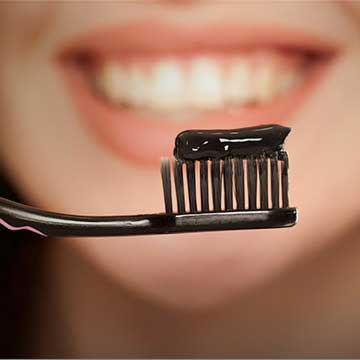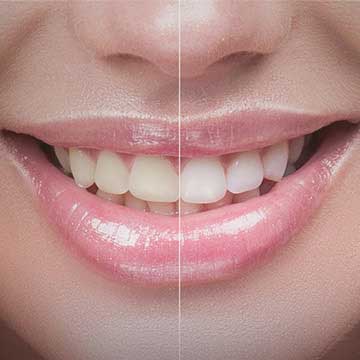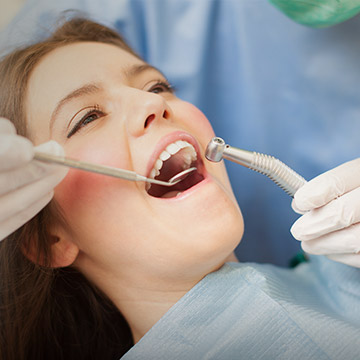Sleep apnea is a serious condition that often goes undiagnosed. It is a common belief that sleep apnea is always accompanied by snoring. However, you can have sleep apnea without snoring.
Sleep apnea can lead to dental issues like cavities, grinding teeth, and gum disease. Because of these symptoms, your dentist may be able to point out that sleep apnea is a possibility during a routine dental exam so you can be assessed by a doctor.
What are the Symptoms of Sleep Apnea?
Here are some common signs to look out for:
- Gasping or choking during sleep: This occurs when breathing is briefly interrupted, causing the person to wake up startled.
- Excessive daytime sleepiness: Feeling unusually tired during the day, even after a full night’s sleep, can be a key indicator.
- Difficulty concentrating: Sleep apnea can affect your cognitive functions, making it hard to focus or remember things.
- Morning headaches: Waking up with headaches can be a result of the disrupted sleep cycles caused by apnea.
- Irritability or mood changes: A lack of restorative sleep can lead to increased irritability or mood swings.
- Loud snoring: Not everyone with sleep apnea snores, but many do, and it’s often described as loud and disruptive.
- Nighttime sweats: Some individuals may experience excessive sweating at night while they sleep.
- Dry mouth: Dry mouth can occur if you breathe through your mouth during the night.
- Bruxism: Individuals with sleep apnea often grind their teeth at night, a condition known as bruxism.
- Acid Reflux: Sleep apnea may exacerbate acid reflux symptoms, as the interruptions in breathing can lead to increased pressure in the abdomen.
- Temporomandibular Joint (TMJ) Disorders: Sleeping on your back can put pressure on your jaw and neck, making it harder for your body to get oxygen, and can cause pain and discomfort in the jaw, face, and neck, leading to TMJ disorders
It would be beneficial to speak with your physician should you have any of the above symptoms.

How Does Sleep Apnea Affect My Health?
Cardiovascular Problems
Sleep apnea can lead to various cardiovascular issues, including high blood pressure, heart attacks, and strokes. The repeated interruptions in breathing cause a lack of oxygen, putting extra strain on the heart and blood vessels.
Weight Gain & Metabolism
Sleep apnea is often associated with weight gain and metabolic issues. The lack of quality sleep can disrupt the hormones that regulate hunger, leading to increased appetite and weight gain, which can worsen sleep apnea.
Mental Health Issues
Chronic sleep deprivation due to sleep apnea can also affect your mental health. It can lead to mood swings, anxiety, and depression.
How Can I Get Screened for Sleep Apnea?
Once you’ve discussed your symptoms with your healthcare professional, they might recommend a sleep study to accurately diagnose sleep apnea. There are two main types of tests: an in-lab sleep study, known as polysomnography, and a home sleep apnea test (HSAT).
The in-lab study takes place in a sleep center where trained technicians monitor your sleep patterns overnight using a variety of sensors to track brain activity, breathing, heart rate, and more.
The home sleep apnea test may be suggested for those with a higher likelihood of having obstructive sleep apnea and fewer other health issues. This convenient option involves using equipment at home that monitors your breathing patterns and blood oxygen levels while you sleep.
Common Myths About Sleep Apnea
Here are some common myths debunked:
Myth 1: Only Overweight People Get Sleep Apnea
While obesity is a significant risk factor, sleep apnea can affect people of any size, age, or gender.
Myth 2: Snoring Is the Only Sign of Sleep Apnea
Many people believe that snoring is the hallmark of sleep apnea, but this is not the case. While snoring is common among those with the condition, many silent sufferers don’t snore at all.
Myth 3: Sleep Apnea Is Just a Minor Inconvenience
It’s easy to dismiss sleep apnea as merely a nuisance, but it can lead to severe health issues, including cardiovascular problems, diabetes, and mental health disorders.
Myth 4: Sleep Apnea Only Affects Adults
Although sleep apnea is more commonly diagnosed in adults, children can also experience this condition. Factors like enlarged tonsils, obesity, and certain medical conditions can contribute to sleep apnea in children.
Myth 5: Treatment for Sleep Apnea Is Not Effective
The condition can be managed with many different treatments including a CPAP machine, lifestyle changes, medications, and surgery depending on the type and severity.
Getting More Restful Sleep
The impacts of sleep apnea can extend beyond sleep disturbances, affecting cardiovascular health, metabolism, and mental well-being. Early detection and adequate treatment can improve the quality of life and prevent severe health complications.
Dental offices can play a role in identifying signs that may indicate sleep apnea. During routine exams, dentists can observe signs of bruxism, such as worn-down teeth or jaw discomfort, as well as symptoms of dry mouth. By recognizing these indicators, dental professionals can prompt further evaluation and encourage patients to seek appropriate medical assessment.
At Otara Dental, we care about your health just as much as your smile. If you suspect you might be experiencing symptoms of sleep apnea, or if it’s simply been a while since your last dental check-up, don’t hesitate to book an appointment with us today!


